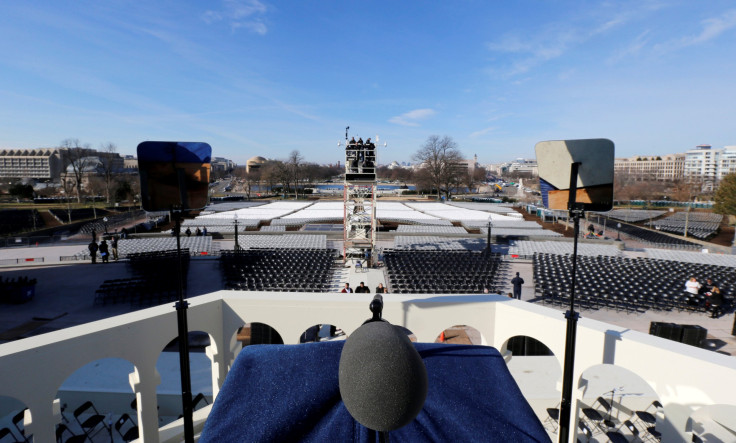Inauguration Day Facts: 10 Things To Know Before Donald Trump Becomes President

President-elect Donald Trump is set to officially take office Friday when he is sworn in during an inauguration ceremony. Trump's path to the White House and the public's response has been atypical. Polling shows the Republican is historically unpopular.
Trump is some 44 points less favorable than President Barack Obama was when he took office in 2009. That could be because Trump has been plagued with an unusual number of scandals he continues to brush aside, despite numerous large protests aimed at disrupting the inauguration.
All that aside, the inauguration — a ceremony aimed at displaying a smooth transition of power — will likely look somewhat similar to those from the past. Many of the same traditions are expected to take place, such as the parade to the White House and the post-inauguration balls, but there are many other interesting facts about the inauguration.
1. It may have killed President William Henry Harrison. The ninth president gave a lengthy inauguration speech in extremely cold and wet weather. He got sick, which eventually turned into pneumonia, leading to his death just one month after taking office.
2. There was a fire during President John F. Kennedy's historic inauguration. During the 1961 inauguration, Kennedy said his iconic line, "Ask not what your country can do for you, ask what you can do for your country." But before that, the lectern on stage briefly caught fire, apparently caused by a faulty heater aimed at keeping speakers from freezing.
3. The Presidential Oath of Office is very short. It reads: "I do solemnly swear (or affirm) that I will faithfully execute the Office of President of the United States, and will to the best of my Ability, preserve, protect and defend the Constitution of the United States."
4. One woman has administered the oath. Federal District Judge Sarah T. Hughes administered the oath for Lyndon B. Johnson on Air Force One as the vice president needed to take over the office after the assassination of Kennedy.
5. Obama had the biggest crowd. Despite claims of otherwise from Trump, attendance this year for inauguration appears to be down a bit, while there will be more protests than usual. A record estimated 1.9 million attended the 2009 inauguration for the nation's first black president.
6. Not every president used a Bible. Trump plans to recite the presidential oath while placing a hand on both his own Bible and one used by President Abraham Lincoln. Not every president has opted to swear-in using a Bible, however. Presidents Franklin Pierce and John Quincy Adams used law books and Lyndon Johnson used a Catholic missal found on Air Force One.
7. The 20th Amendment to the Constitution changed the date of inauguration. Inaugurations used to take place in March, but as technology for vote counting improved, that was changed. The 20th Amendment, ratified in 1933, changed the date to Jan. 20.
8. Vice President Andrew Johnson gave a drunken speech. Either ill or nervous, Lincoln's vice president apparently responded by imbibing too much alcohol and made a rambling speech as he swore into his position in 1865.
9. President Bill Clinton took the event into the internet age. Clinton's second inaugural address was the first to be live-streamed over the internet.
10. President George Washington had the first inauguration, President Thomas Jefferson had the first parade. Washington was sworn in as the first president in New York City in April of 1789. Jefferson was the first president to be sworn in in Washington, D.C., and the first to hold a parade to mark his second inauguration in 1805.
© Copyright IBTimes 2024. All rights reserved.






















